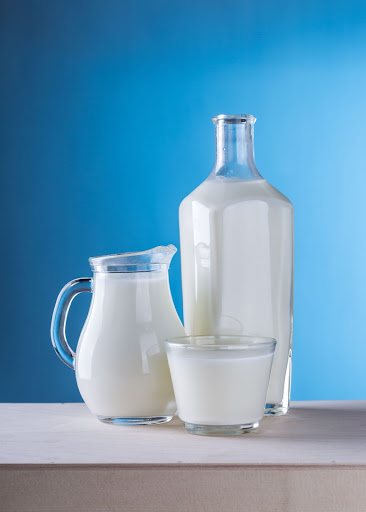Though dairy products are a staple in many diets, there are a number of health and environmental reasons to avoid them.
- It is highly processed
Dairy products are some of the most highly processed foods available. In order to extend their shelf life and preserve their nutrient composition, dairy products undergo a variety of processing techniques. For example, milk is usually homogenized, which involves breaking down the fat molecules so that they are evenly distributed throughout the milk. Milk can also be pasteurized, a process which kills bacteria and other contaminants. Cheese is another dairy product that commonly undergoes processing. Enzymes are sometimes added to cheese in order to speed up the ripening process. As a result of all this processing, dairy products can sometimes be high in additives and preservatives.
- It’s full of hormones and antibiotics
Dairy products can contain hormones and antibiotics that can have negative effects on human health. For instance, acne is a common skin condition that has been linked to the consumption of dairy products. In addition, some studies have found that dairy products may increase the risk of certain types of cancer, such as ovarian cancer. While more research is needed to confirm these findings, it is clear that consuming dairy products comes with certain risks.
- It’s difficult to digest
For many people, dairy is difficult to digest. This is because the lactase enzyme, which helps to break down lactose, is not produced in large enough quantities. As a result, undigested lactose passes through the intestine and causes gas, bloating, and diarrhea. In addition to causing digestive discomfort, lactose intolerance has been linked to an increased risk of heart disease.
- Non-dairy calcium is abundant
Calcium is an essential mineral for human health. It can readily be found in plants, particularly green leafy vegetables. Non-dairy sources of calcium are often more easily absorbed by the body than dairy sources. In addition, non-dairy sources of calcium can help to reduce the urinary calcium excretion that contributes to kidney stones, and they can also help to lower the renal acid load that can lead to bone loss.
- Ethics of dairy consumption
The ethics of dairy consumption are often called into question due to the way cows are treated in the dairy industry. Cows are kept in crowded, unsanitary conditions and are fed a diet of grains and growth hormones. This leaves them susceptible to infections, which can contaminate the milk they produce. In addition, cows are routinely given antibiotics to prevent infections. However, these drugs can leave toxic residues in the milk, which can be harmful to human health.
- Dairy production impacts the environment
Cows are a major source of greenhouse gas emissions, and the production of dairy products requires large amounts of water and energy. In addition, the dairy industry is a major contributor to deforestation and habitat loss. The clearing of land for pasture and the growing of feed crops destroys natural ecosystems and displaces wildlife.
For all these reasons, you’ll want to avoid dairy by choosing alternatives such as nut milks that offer safe nutrients.
Remember we are what we eat, we must think about what the cow eats (corn, grain) most cows are not fed on grass as they should be.
Otto, S. (n.d.). Rethinking Dairy. Goodness Lover. Retrieved June 3, 2022, from http://www.goodnesslover.com/


